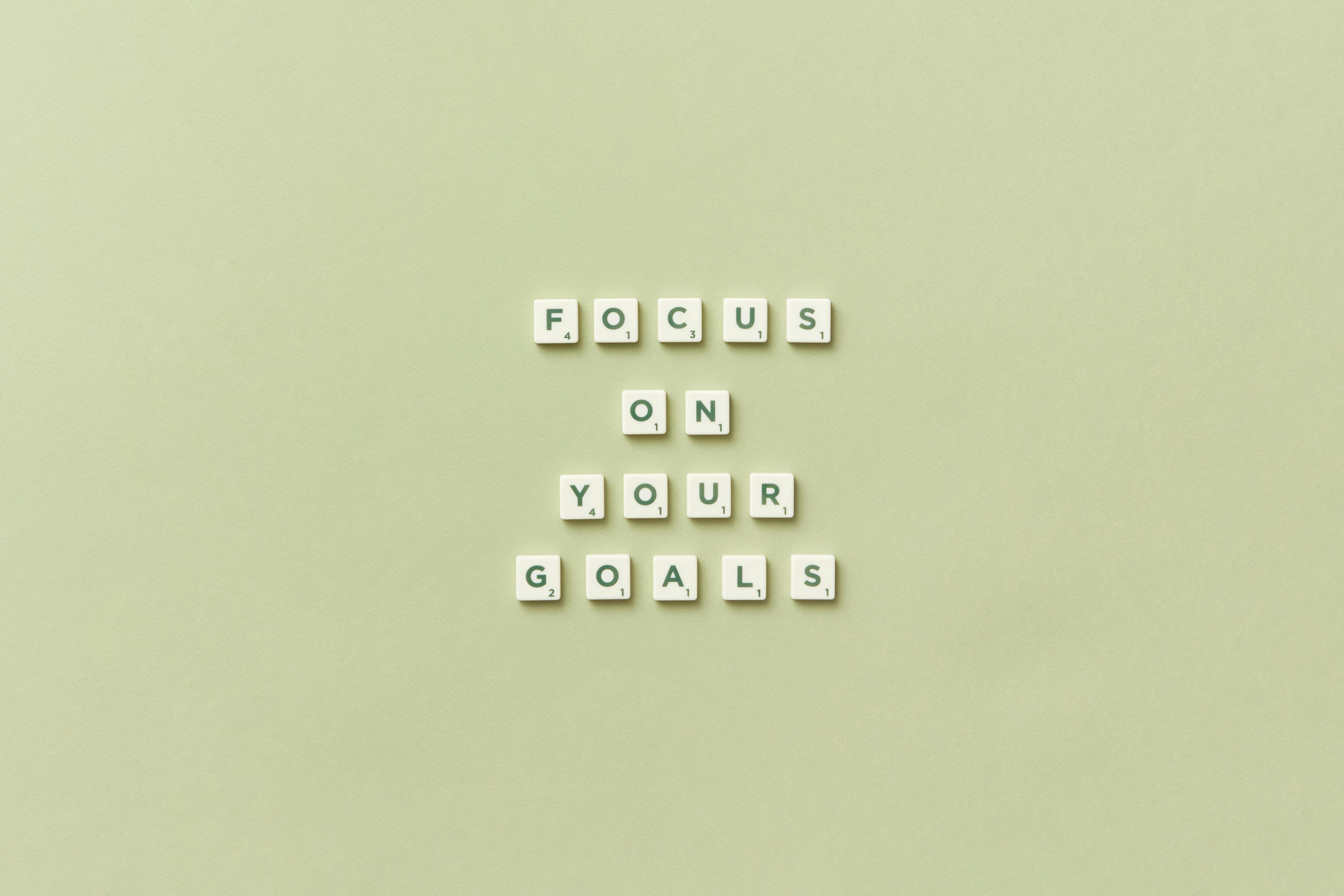We’ve all been there: staring at our reflection in the mirror, promising ourselves that this time, we’ll really make a change. Whether it’s finally organizing that closet that looks like it was hit by a tornado, or learning to meditate without falling asleep, we all have aspirations for self-improvement. But let’s face it, change is hard. It’s like trying to teach a cat to fetch – possible, but not without some scratches along the way.
Enter the 30-day challenge. It’s like a personal development bootcamp, minus the drill sergeant and questionable food. These month-long commitments have become increasingly popular, and for good reason. They provide structure, accountability, and a finite timeframe that even the most commitment-phobic among us can handle. After all, you can do anything for 30 days, right? (Except maybe give up coffee. Let’s not get crazy here.)
The Science Behind 30-Day Challenges
Before we dive into the challenges themselves, let’s take a moment to understand why these 30-day sprints can be so effective. It’s not just self-help mumbo jumbo – there’s actual science behind it.
- Habit Formation: While the old adage that it takes 21 days to form a habit has been debunked (sorry, motivational poster industry), research does suggest that it takes an average of 66 days for a new behavior to become automatic. A study published in the European Journal of Social Psychology found that the time it takes to form a habit can range from 18 to 254 days, depending on the complexity of the behavior. A 30-day challenge gives you a solid start on this process.
- Neuroplasticity: This is your brain’s ability to reorganize itself by forming new neural connections. A study published in the journal “Neurobiology of Learning and Memory” found that consistent practice of a new skill can lead to observable changes in the brain in as little as 7 days. By day 30, you’re well on your way to rewiring your brain for success.
- Motivation and Momentum: Short-term goals can be more motivating than long-term ones. A study in the Journal of Consumer Research found that people are more likely to complete a goal when they focus on how much progress they’ve made (like in a 30-day challenge) rather than how far they have left to go.
- Self-Efficacy: This is your belief in your ability to succeed in specific situations. A series of small wins over 30 days can significantly boost your self-efficacy. A meta-analysis published in the Psychological Bulletin found that increased self-efficacy leads to better performance across a wide range of tasks.
So, now that we know why 30-day challenges can be so powerful, let’s dive into some challenges that can help you level up your life faster than you can say “personal growth spurt.”
Physical Health and Fitness Challenges
1. 30-Day Plank Challenge:
Start with a 10-second plank on day one and work your way up to a 5-minute plank by day 30. Your core will thank you (eventually, after it stops cursing your name).
2. 30-Day Walking Challenge:
Aim to walk 10,000 steps every day for a month. A study published in the International Journal of Behavioral Nutrition and Physical Activity found that people who aimed for 10,000 steps a day saw significant improvements in physical and mental well-being.
3. 30-Day Hydration Challenge:
Drink the recommended amount of water each day (typically about 8 glasses). A study in the Journal of Human Nutrition and Dietetics found that increased water intake led to reduced calorie intake and improved hydration.
4. 30-Day Yoga Challenge:
Practice yoga for at least 15 minutes every day. Research published in the Journal of Physical Activity and Health found that regular yoga practice was associated with improved mental health, including reduced symptoms of depression and anxiety.
5. 30-Day Push-Up Challenge:
Start with as many push-ups as you can do on day one, and gradually increase throughout the month. A study in the Journal of Strength and Conditioning Research found that a progressive push-up program significantly improved upper body strength.
Mental Health and Mindfulness Challenges
1. 30-Day Meditation Challenge:
Start with 5 minutes of meditation daily and work up to 20 minutes by the end of the month. A study published in Psychiatry Research: Neuroimaging found that 8 weeks of mindfulness meditation led to increased gray matter density in brain regions associated with learning, memory, and emotion regulation.
2. 30-Day Gratitude Challenge:
Write down three things you're grateful for each day. Research in the Journal of Personality and Social Psychology found that practicing gratitude was associated with greater happiness, better sleep, and reduced symptoms of physical illness.
3. 30-Day Digital Detox Challenge:
Reduce screen time by 30 minutes each day, replacing it with a non-digital activity. A study in the Journal of Social and Clinical Psychology found a link between reduced social media use and decreased feelings of depression and loneliness.
4. 30-Day Journaling Challenge:
Write for at least 10 minutes each day. A study in the Advances in Psychiatric Treatment journal found that expressive writing could lead to long-term benefits in mood and physical health.
5. 30-Day Positivity Challenge:
Each day, consciously reframe one negative thought into a positive one. Research in the Journal of Research in Personality found that positive self-talk was associated with greater life satisfaction and optimism.
Professional Development Challenges
1. 30-Day Networking Challenge:
Reach out to one new professional contact each day. A study in the Administrative Science Quarterly found that networking was positively associated with career success and satisfaction.
2. 30-Day Skill-Building Challenge:
Spend 30 minutes each day learning a new skill related to your career. The World Economic Forum's Future of Jobs Report emphasizes the importance of continuous learning for career success in the rapidly changing job market.
3. 30-Day Productivity Challenge:
Use the Pomodoro Technique (25 minutes of focused work followed by a 5-minute break) for at least 2 hours each day. A study in the Journal of Applied Psychology found that regular short breaks could improve focus and productivity.
4. 30-Day Public Speaking Challenge:
Practice speaking in front of a mirror for 5 minutes each day, gradually increasing the time. While not a scientific study, the experience of Toastmasters International suggests that regular practice significantly improves public speaking skills.
5. 30-Day LinkedIn Optimization Challenge:
Improve one aspect of your LinkedIn profile each day. While there's no specific study on this, LinkedIn reports that members with complete profiles are 40 times more likely to receive opportunities through the platform.
Personal Growth and Creativity Challenges
1. 30-Day Reading Challenge:
Read for at least 30 minutes every day. A study in the journal Social Science & Medicine found that book readers live an average of two years longer than non-readers.
2. 30-Day Decluttering Challenge:
Declutter one small area of your home each day. While not a scientific study, the popularity of Marie Kondo's methods suggests that decluttering can lead to reduced stress and increased happiness.
3. 30-Day Creative Writing Challenge:
Write a short story or poem each day. While creativity is difficult to measure scientifically, many writers attest to the benefits of daily writing practice for improving skills and generating ideas.
4. 30-Day New Recipe Challenge:
Try cooking a new recipe each day. While not directly studied, learning new skills (like cooking) has been associated with improved cognitive function in numerous studies.
5. 30-Day Random Acts of Kindness Challenge:
Perform one act of kindness each day. A study in the journal Emotion found that performing acts of kindness led to increased life satisfaction and positive emotions.
Financial Wellness Challenges
1. 30-Day Saving Challenge:
Save a specific amount each day, increasing it slightly every day. While not a scientific study, many financial advisors recommend this method for building savings habits.
2. 30-Day No-Spend Challenge:
Avoid unnecessary purchases for 30 days. A study in the Journal of Consumer Research found that practicing self-control in one area (like spending) can improve self-control in other areas of life.
3. 30-Day Financial Education Challenge:
Learn one new financial concept each day. The FINRA Investor Education Foundation found that individuals with higher financial literacy were more likely to make ends meet and plan for the future.
4. 30-Day Expense Tracking Challenge:
Record every expense for 30 days. While not a scientific study, many financial experts recommend this as a crucial first step in improving financial health.
5. 30-Day Side Hustle Challenge:
Spend 30 minutes each day developing a side income stream. A survey by Bankrate found that 45% of Americans have a side hustle, with many reporting improved financial stability as a result.
Relationship and Social Challenges
1. 30-Day Compliment Challenge:
Give a genuine compliment to someone each day. A study in the journal PLoS One found that giving compliments was associated with increased happiness for both the giver and receiver.
2. 30-Day Family Time Challenge:
Spend 30 minutes of quality, device-free time with family each day. While not a specific study, numerous research papers have highlighted the importance of family time for both adult and child well-being.
3. 30-Day Active Listening Challenge:
Practice active listening in one conversation each day. A study in the International Journal of Listening found that active listening was associated with improved relationship satisfaction.
4. 30-Day Boundary Setting Challenge:
Set or reinforce one personal boundary each day. While not a specific study, many psychologists emphasize the importance of healthy boundaries for mental health and relationship satisfaction.
5. 30-Day Forgiveness Challenge:
Each day, work on forgiving someone (including yourself) for past hurts. A study in the Journal of Health Psychology found that forgiveness was associated with reduced stress and improved mental health.
Tips for Success in 30-Day Challenges
Now that you’re armed with enough challenges to keep you busy until retirement, here are some tips to help you succeed:
- Start Small: Don’t try to overhaul your entire life at once. Pick one or two challenges that align with your current goals and focus on those.
- Track Your Progress: Use a habit tracker app or good old-fashioned calendar to mark off each day you complete your challenge. A study in the American Journal of Preventive Medicine found that consistently tracking a new habit increased the likelihood of maintaining it.
- Find an Accountability Partner: Share your challenge with a friend or join an online community. A study in the Journal of Consulting and Clinical Psychology found that social support significantly improved outcomes in behavior change programs.
- Prepare for Obstacles: Anticipate potential roadblocks and plan how you’ll handle them. The implementation intention strategy (“If X happens, then I’ll do Y”) has been shown to be effective in numerous studies on habit formation.
- Be Flexible: If you miss a day, don’t throw in the towel. Just pick up where you left off. Perfection isn’t the goal – progress is.
- Reflect Regularly: Take a few minutes each week to reflect on what’s working and what isn’t. Adjust your approach as needed.
- Celebrate Small Wins: Acknowledge your progress, no matter how small. This can boost motivation and make the challenge more enjoyable.
The Aftermath: What Happens After 30 Days?
So, you’ve made it through 30 days. You’ve planked until your core could grate cheese, meditated until you reached nirvana (or at least until you stopped falling asleep), and decluttered so much that your home echoes. What now?
First, give yourself a pat on the back. Completing a 30-day challenge is no small feat. You’ve proven to yourself that you can commit to something and see it through. That’s worth celebrating!
But the real question is: will the changes stick? Here’s what research tells us:
- Habit Formation: Remember that study we mentioned earlier about habit formation? While 30 days is a great start, it might not be enough to fully cement a new habit. If you want to make the change permanent, consider extending your challenge or finding ways to integrate the new behavior into your daily routine.
- Identity Shift: A study published in the Personality and Social Psychology Bulletin found that people who viewed a behavior as part of their identity were more likely to maintain it long-term. So, if you want to keep up your new habit, start thinking of yourself as “someone who meditates” or “a person who exercises regularly.”
- Motivation Maintenance: The initial excitement of a challenge can wear off. A study in the Journal of Personality and Social Psychology found that intrinsic motivation (doing something because you enjoy it or find it meaningful) was more effective for long-term behavior change than extrinsic motivation (doing something for external rewards or to avoid punishment).
- Skill Development: Depending on the challenge, you may have developed new skills or improved existing ones. A study in the journal Intelligence found that continued practice was necessary to maintain cognitive skills over time.
- Lifestyle Integration: The key to long-term change is integrating new behaviors into your lifestyle. A study in the American Journal of Lifestyle Medicine emphasized the importance of environmental and social support in maintaining healthy behaviors.
So, what should you do after your 30-day challenge? Here are some suggestions:
- Evaluate: Reflect on what you’ve learned and how you’ve changed. What worked well? What was challenging?
- Adjust: Based on your evaluation, make any necessary adjustments to make the habit more sustainable long-term.
- Continue: If the challenge was beneficial, consider continuing it (perhaps in a modified form) or integrating aspects of it into your daily routine.
- Share: Share your experience with others. This can reinforce your commitment and potentially inspire others.
- Choose a New Challenge: If you’re feeling motivated, pick another area of your life you’d like to improve and start a new 30-day challenge.
Remember, personal development is a journey, not a destination. These 30-day challenges are not about achieving perfection, but about making progress and learning about yourself in the process.
So, whether you’re emerging from your 30-day challenge as a plank master, a meditation guru, or just someone who can now see their bedroom floor, take a moment to appreciate how far you’ve come. And then? Well, there’s always another challenge waiting. After all, life is the ultimate 30,000-day challenge (give or take a few thousand). Make each day count!
Now, if you’ll excuse us, we have a closet to declutter and a plank to hold. Wish us luck!
Try out challenging online courses by Hapday, Your Wellbeing Assistant
Join the millions of people using Hapday. Improve overall wellness & sleep.




